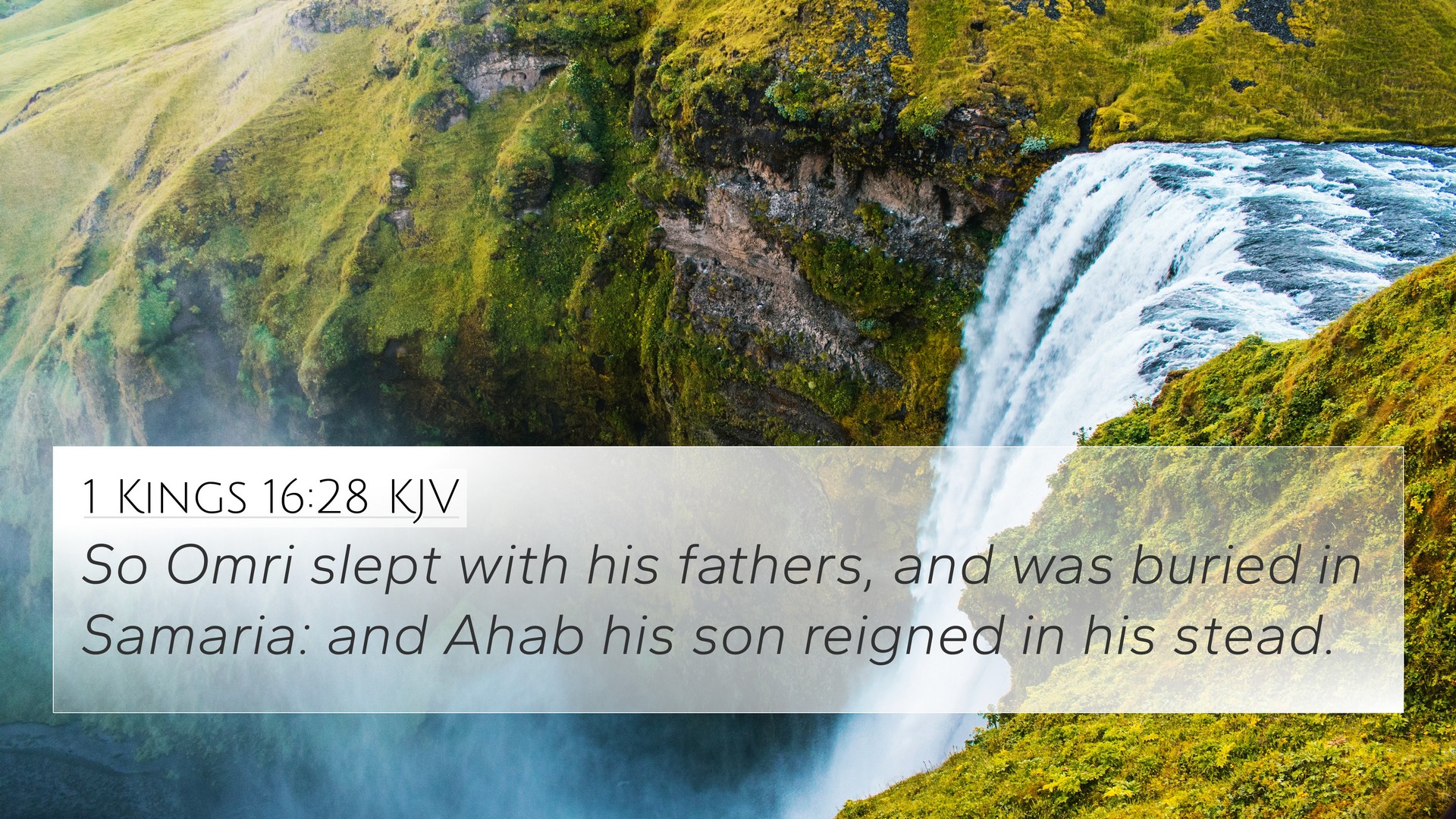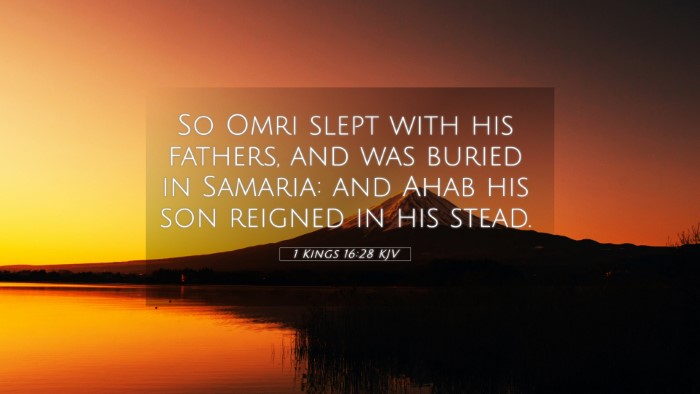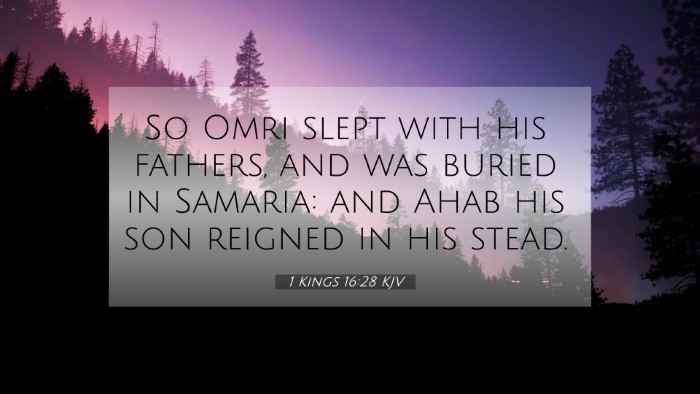Bible Verse Meaning and Analysis of 1 Kings 16:28
Bible Verse: 1 Kings 16:28 - "So Omri slept with his fathers and was buried in Samaria. Ahab his son became king in his place."
This verse marks the end of Omri's reign and the transition to his son Ahab as king of Israel. Understanding its implications requires examining Omri's legacy and the context of Ahab's reign.
Contextual Background
Omri was a significant king in Israel's history, known for establishing the city of Samaria and strengthening Israel's economy and military. His rule, however, was marked by idolatry and a departure from Yahwistic worship, elements that would profoundly affect his son Ahab's reign.
Commentary Insights
Matthew Henry's Commentary
Matthew Henry emphasizes Omri's notable yet flawed leadership. He concludes that while Omri was a man of might politically and militarily, he did not align himself with God, leading Israel further into idolatry. The transition to Ahab is critical as it represents a continuance of this apostasy.
Albert Barnes' Notes
Barnes notes that Omri's reign laid the groundwork for Ahab's rule, particularly with the establishment of Samaria. He highlights how the successes of Omri were overshadowed by his choices to worship Baal, which had dire consequences for the nation of Israel.
Adam Clarke's Commentary
Clarke points out the significance of kingship succession in Israel, stressing that Ahab's ascension marked an intensification of idolatrous worship. Omri's death and burial symbolize not only a physical end but the ongoing spiritual decline of the nation.
Thematic Connections
This verse highlights key themes in the Bible, such as:
- The importance of righteous leadership and its impact on the nation.
- The perils of idolatry and neglecting divine commandments.
- The continuity of sin affecting successive generations.
Cross-References
1 Kings 16:28 connects to several important verses throughout the Bible, including:
- 1 Kings 18:17-18: Ahab's confrontation with Elijah highlighting the spiritual corruption in Israel.
- 1 Kings 21:25-26: Ahab's wickedness, which is described as unparalleled among the kings.
- 2 Kings 1:2: The ongoing narrative of Israel's kings, illustrating the detrimental legacy of Omri.
- Deuteronomy 17:14-20: Guidelines for kings that serve as a contrast to Omri and Ahab's reigns.
- Jeremiah 7:28: A reference to the people's rejection of God's commandments, relating back to Omri and Ahab's influence.
- Revelation 2:14: A mention of Balaam's error which reflects the ongoing idolatry inherited from leaders like Ahab.
- Luke 1:17: Connections to the prophetic call for repentance from idolatric practices in Israel, a theme that transcends the Old Testament.
Conclusion
The verse encapsulates the historical and theological implications of kingly successions in Israel, particularly emphasizing the darkness that idolatry cast over Omri's legacy and, ultimately, Ahab's reign. Understanding this helps build connections between various scriptures and offers profound insights into the consequences of turning away from divine guidance.
Exploring Bible Cross-References
To utilize cross-referencing resources while studying the Bible:
- Utilize a Bible concordance to locate terms and themes connected to 1 Kings 16:28.
- Engage in cross-reference Bible study methods by identifying thematic parallels with other scriptures.
- Look for Bible reference resources that list verses about leadership and idolatry.
- Employ a Bible cross-reference guide to enrich understanding of interconnected biblical themes.
By delving into these dimensions, you can gain insights that illuminate the intricate dialogues between various books and authors in the Bible. This exploration will deepen your understanding of how these verses relate to each other, enhancing your spiritual journey.


